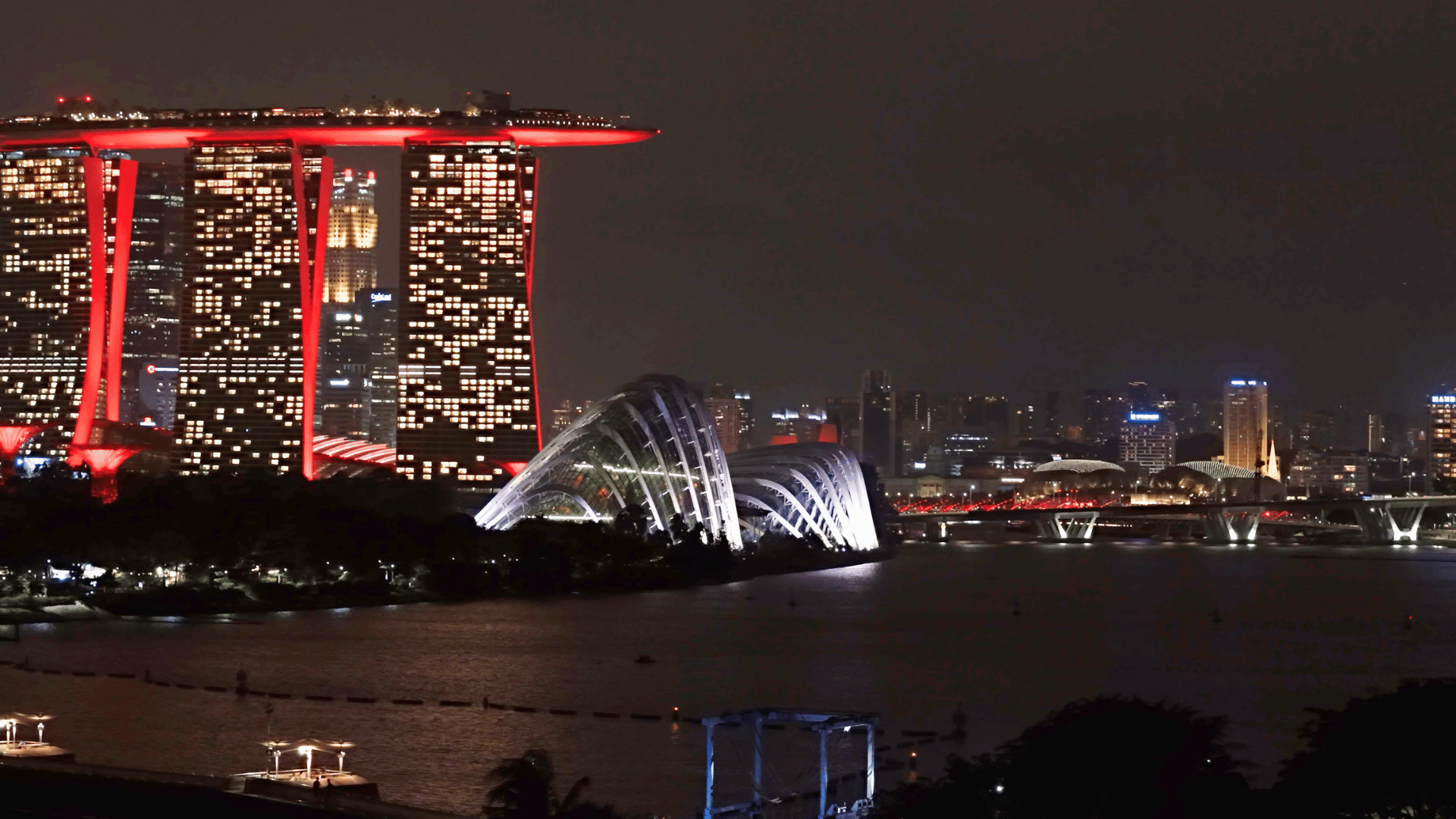Governments have been actively seeking to regulate the internet which has yet to mature into a safe and fair place. Laws have been introduced around the world to tackle the Wild West elements on the internet from cyber bullying to online child exploitation to legal and illegal harms. In Singapore, our own Protection from Online Falsehoods and Manipulation Act (POFMA) came into effect on 2 October 2019 to fight the scourge of fake news. The law targets the spread of malicious falsehoods and the use of fake accounts and automated bots that spread fake news rapidly through various social media platforms.
The law ignited fierce debate over its necessity, and since its launch, POFMA has been issued a total of 55 times. The use of POFMA during the recent General Election sparked concerns of regulatory overreach and its effect on freedom of expression and speech.
Through the use of POFMA, the government has been able to stop the possible spread of falsehoods that would have impacted on Singapore’s public interest and peace, such as inciting hatred between different groups of persons and undermining the confidence of the Government and its entities. Correction orders have been issued to owners of websites, Facebook, and YouTube accounts for content that has been deemed false by the relevant authorities.
POFMA provides the government and its entities a means to tackle and take down falsehoods, but what about ordinary individuals? What recourse or platforms do they have against, predators, cyberbullies, and criminals? Individuals are increasingly turning to the internet to voice their opinions and causes that they believe in. Although signifying the maturing of the Singaporean population that is not afraid to share openly their beliefs, there is also the ugly side where opinions are forced onto others — digital lynch mobs and vigilantes that flagrantly seek to amplify mistakes and stir discourse on issues they know would cause hurt and rile specific communities.
There is, however, space and a need in the digital sphere for proper dialogue and conversations. Former Paraplympian Theresa Goh aptly summed this up when asked about the areas that she thinks the country can improve on, “I think when wanting to do right by a group of people, we could do better at listening to what that group of people need rather than assuming we know what they need.” She added that, “I think we need to learn to be better at having conversations, and that means being open to different views and not just being open to discussions that we are accepting of because that’s not how we grow.” Being open and humble is important in any conversation.
With increasing digital penetration among the young, the incidence of cyber bulling has also increased with 3 in 4 youths reporting incidents of being bullied online. Defined as electronic communication with the intent to intimidate and hurt a person or a group, intentionally or otherwise, sending hurtful messages, spreading rumours online, and circulating humiliating or degrading photos or videos of someone — these would be considered acts of cyber bullying. The rising online vigilantism approach of revealing the identity and personal information of a victim (doxxing) with the intention to harass is now illegal in Singapore. The act criminalises the publication of personally-identifiable information with the intention of harassing, threatening, or facilitating violence against a person. Predators can face fine up to S$5,000 and a jail term if found guilty.
Has the introduction of POFMA and amendment of the Protection from Harassment Act tamed the internet? Is there a need for more regulations or should extreme opinions be countered and checked by more moderate and fair-minded individuals? To answer the first question – yes, I believe regulations has brought to mind the need to be factual and accurate in the expression of statements and views as false statements and harassment can cause irreparable damage to personal reputation and loss of life during an emergency. As to the need for more regulation, I feel the laws are presently sufficient with legal recourse available for doxxing, online defamation, digital impersonation, and cyberbullying. But more can be done to educate individuals on the incidence of cyberbullying and how to better cope or respond to it. In addition, more can be done to champion the need for proper dialogue and respecting differences between individuals and groups.
We are also increasingly witnessing social or online justice being dispensed in the court of public opinion. Coordinated community movements such as #BlackLivesMatter and #MeToo movement have been able to bring causes and injustice to light and provide spaces for individuals to come together. These movements have helped to build equity for minorities and underrepresented individuals and groups in society. There are however dangers of mob justice where sometimes the lives of the innocent are affected and even ruined. Take the recent case of a women in Singapore who claimed to be “Sovereign” and did not need to follow the law on wearing masks when outdoors. Doxxers had wrongly targeted an innocent individual by identifying her as a chief executive officer of a tech company. There are many more examples where mistaken identity, false accusations, or the act of forwarding a controversial image have caused individuals to lose their jobs and affected their family life.
Here in Singapore, there has been a lot of discussions on cancel culture and about woke mobs demanding accountability for a controversial tweet, video clip or post. Very often, when an individual’s misdeeds or action fail to conform to progressive views and beliefs, they are often attacked and ‘cancelled’ on social media. Cancel culture basically refers to a concerted effort to withdraw support for an individual or business that has said or done something objectionable until they either apologise or disappear from view. Academics have supported the view that activism on social media can be constructive and legitimate but have also warned that if the aim of the movement was to harm others then it is less positive. The ease at which an individual can be attacked, or have a petition circulated to have them fired or ostracised can be easily used to limit discussions and the free exchange of ideas and information.
The cancel culture has often been criticised for being mob like and seeking to punish their target until they are totally destroyed, leaving no room for offenders to learn from their mistakes and change for the better. In the past few months, influencer Xiaxue had challenged the mob approach following calls for her sponsors to drop her after some of her old racist tweets resurfaced. Mediacorp Channel 8 drama My Guardian Angels had been called out for their stereotypical negative characterisation of gays. Mediacorp and the artists Chase Tan, Kym Ng, and Brandon Wong who were involved in the series were slammed online for their involvement. Mediacorp issued a statement that there was “no intention to disrespect or discriminate against any persons or community in the drama”. Chase Tan apologised for his role in causing distress to the LGBTQ community and promised to do better.
Australian fitness guru Chloe Ting, whose YouTube channel has 13.6 million followers recently stood up in a 17-min video titled “time to talk” to address a Singaporean man’s criticism of her as he sought to defame her and make a profit through a series of 62 Instagram stories about Chloe that were entitled, “The Scoop on Chloe Ting”. These stories was a blatant attempt to profit at the expense of Chloe and were quickly taken down following her video.
Influencer Joanna Theng also experienced backlash for her scripted comments on the LGBT community in a Christian group’s video post. Despite apologising for the comments made in the video, a vocal minority continues to inflame the situation. She continues to be attacked online and the attacks have also extended towards her family members. The online vigilantism also attempted to impersonate her online with the aim of perpetuating the incident and using it to create further discourse among the various communities. Why? What purpose does such action serve but a misguided attempt to milk more followers? Whilst Joanna champions and supports open mature discussions, a line needs to be drawn when comments become defamatory, especially to family members.
Joanna Theng will learn from the incident and will emerge more mature and aware that as a public figure, her words matter. She, as well as other public figures, will certainly thoroughly vet scripts given to them and will not participate in any reading unless they truly agree with the content being said. We hope aspiring influencers and online personalities would take away the positives from these incidents and emerge as positive change individuals for the community. Joanna has clarified that she is not homophobic, and many friends, I believe, have and will step forward to attest to this. The numerous sharing and comments on the incident displays an underlying desire for greater dialogue and understanding of various communities here in Singapore. A 2015 forum article in the Straits Times titled “Agreeing to disagree on LGBT issues” called for Singapore to cultivate a culture in which we are able to both articulate our views as well as respect the views of the opposing camp. The writer rightfully stated that contentious issues should not be hidden from students but instead, encouraged to be debated, with emphasis on respect for the opinions of both sides. She added that such a culture of understanding cannot be cultivated overnight and is certainly not simple to bring about. Yet, she felt that being able to succeed in nurturing such a culture would put Singapore in stable hands for the future.
As we understand the views and feelings of various communities better, we echo Pink Dot’s statement and solidarity with the many individuals who have stepped up to share their struggles and experiences with the intention to educate and correct misinformation on their community. Misunderstandings will definitely surface from time to time and it is the collective responsibility to engage in constructive dialogue and activities that will help navigate the differences and make space for everyone to peacefully and respectfully co-exist.
Through better understanding of issues at hand, being better listeners, and humbleness to deferring views, I believe these will help make the wild wild west a little less wild and more welcoming.












